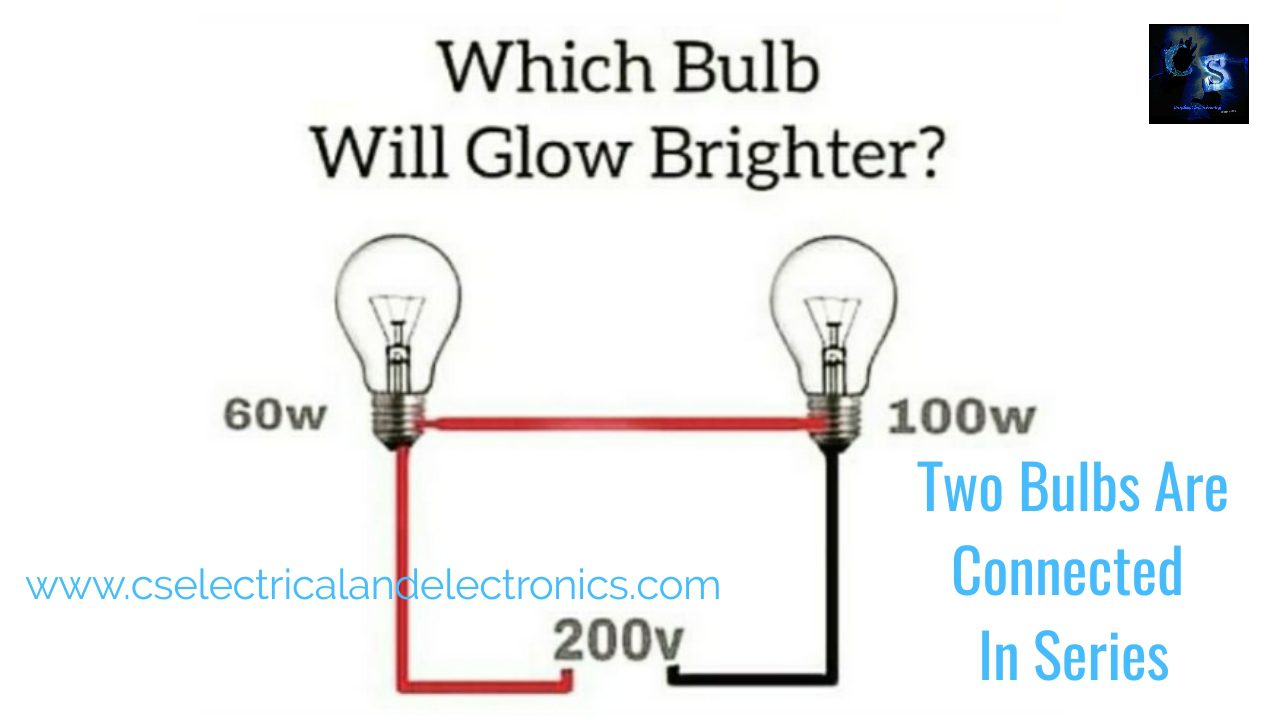Two bulbs are connected in series which bulb will glow brightly
Hello guys, welcome back to my blog. In this article, I will discuss when the two bulbs of different power ratings are connected in series which bulbs will glow more or brightly. Each and everything I will try to explain in a simple way.
If you want an article on some other topics then comment us below in the comment section. You can also catch me @ Instagram – Click Here.
Also read – Electrical Estimation And Costing Questions And Answers.
Two bulbs are connected in series which bulb will glow brightly
Guys, as you can see above image where two bulbs of 60 watts and 100 watts are connected in series with 200 volts supply. Now the question is which bulb will glow brighter. We all know that the bulb which dissipates more power will glow brighter (P=I^2 * R).
First, I will calculate the resistance of two bulbs.
Consider 60 watts bulb
P = V^2 / R
R = V^2 / P
= 200^2 / 60
= 666.66 ohm’s
The resistance of the 60-watt bulb is 666.66 ohm’s
Consider 100 watts bulb
R = V^2 / P
= 200 ^2 / 100
= 400 ohm’s
The resistance of the 100-watt bulb is 400 ohm’s
Well, now I will calculate the current flowing through the circuit.
Current,
I = V / R
= 200 / (666.66 + 400)
= 0.18 Amps
Now, I will calculate the power dissipated by both the bulbs. The bulb which dissipates more will glow brighter.
The formula to calculate power dissipation is, P = I^2 * R.
For 60 watt bulb,
P = I^2 * R
= (0.18)^2 * 666.66
= 21.59 watts
For 100 watt bulb,
P = I^2 * R
= (0.18)^2 * 400
= 12.96 watts
Therefore, the bulb which dissipates more power will glow brighter. Thus, the 60-watt bulb will glow brighter than a 100-watt bulb.
I hope this article will help you all a lot. Thank you for reading.
Don’t forget to follow me on Instagram – Chetan Shidling.
If you want an article on two bulbs connected in parallel then comment below in the comment section. If you share this article with your friends then I really appreciate you.
Also, read:
- Difference Between Domain And Zonal Architecture in Automotive: A Complete Guide
- Roadmap To Become A Successful Hardware-in-the-Loop (HiL) Engineer
- 1000+ Automotive Interview Questions With Answers
- RTOS In The Automotive Industry: The Brains Behind Real-Time Vehicle Control
- High Performance Computers in Software-Defined Vehicles (SDVs): Architecture, Challenges, and Future Trends

